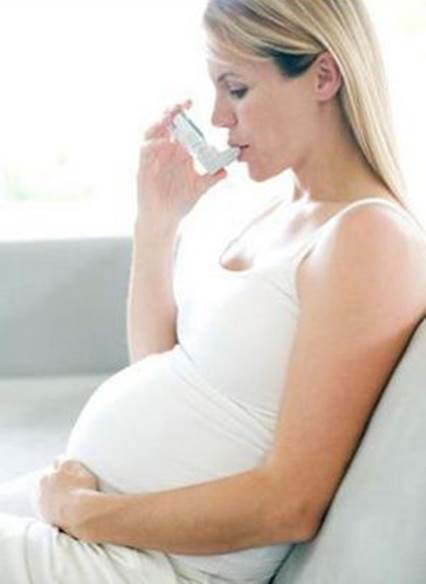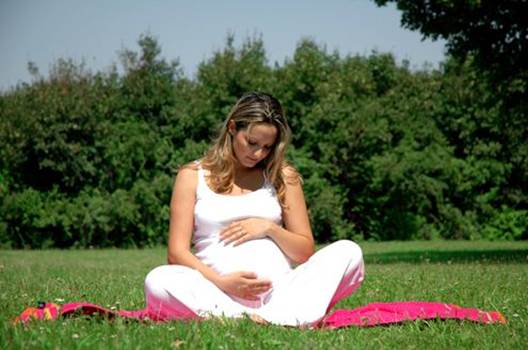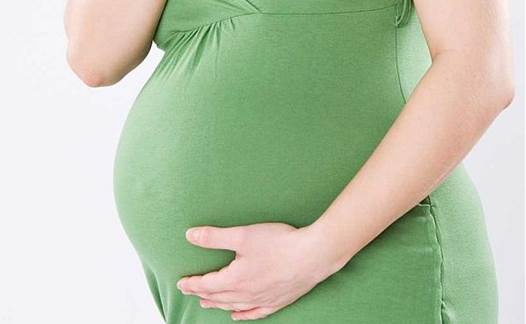Pregnancy sadly does not make you
immune to allergic reactions or asthma. But you can manage your condition
If you’ve suffered from allergies all your
life, then you’ll know that even though your allergies can’t be cured, they can
be treated with anti-histamines and low-dose steroids. But what happens when
you’re pregnant and in the same way that you can’t drink, smoke, or eat sushi
for nine months, you also can’t pop your allergy meds into your mouth anymore?
What does this mean for you and your baby and how can you manage your allergies
so that both of you stay safe, happy and healthy?

If
you’ve suffered from allergies all your life, then you’ll know that even though
your allergies can’t be cured, they can be treated with anti-histamines and
low-dose steroids.
What’s safe? What’s not?
The good news is that if you were taking an
antihistamine (over-the-counter, prescription or homeopathic) before you fell
pregnant to manage your eczema or allergic rhinitis, you can carry on taking
one. Nose sprays (saline and steroid) and steroid creams are safe too but
always discuss with you doctor just to be sure.
“The antihistamine with the best track
record is Loratadine. It’s non-sedating and has never been proven to be unsafe
in early pregnancy or when you’re breastfeeding,” says allergy specialist Dr.
Adrian Morris, who runs allergy clinics in Cape Town, Durban and Joburg.
“It’s better to manage your allergies with
an antihistamine or steroid cream than to struggle with them. Suffering from
allergies will only keep you up at night, and make you feel worse in the long
run. A pregnant woman needs to be well rested for the sake of her baby.”

It’s
non-sedating and has never been proven to be unsafe in early pregnancy or when
you’re breastfeeding,
Allergy shots are also considered safe in
pregnancy, but only if you’d been on the receiving end of them for a while
before you conceived. Most allergists say it’s not a good idea to start allergy
shots during pregnancy, because they trigger changes in your already
fluctuating immune system and may cause unexpected reactions.
Anything that contains the decongestant
pseudoephedrine (for example, Sudafed) is, however, not advisable during
pregnancy and should be avoided during your first trimester in particular, when
the theoretical risks to your baby are highest. It also works by expanding and
contracting your blood vessels, and could therefore restrict blood flow to the
placenta.
What about asthma?
“As far as asthma is concerned, it’s better
to take your medication during pregnancy and manage your asthma than struggle
to breathe, risk an asthma attack and potentially bring on early labor which would
be far worse for you and your baby,” urges Dr. Morris, adding that you want to
be as healthy as possible during your pregnancy.
He stresses, though, that if you’re using
an inhaler or taking a steroid-based medication like Celestamine to control
your asthma during pregnancy then it needs to be done so under medical
supervision.
“Yes, your baby will get some of your
asthma medication, but it isn’t bad for your baby and in fact steroids are
often given to moms to help their babies’ lungs mature faster – if they know
they’re going to have to deliver before 37 weeks and can be beneficial in late
pregnancy,” says Dr. Morris. “Salbutamol – the mainstay of asthma treatment –
may also relax the uterus and it is a treatment for premature labor,” he says.

“Salbutamol
– the mainstay of asthma treatment – may also relax the uterus and it is a
treatment for premature labor,” he says
That said, so long as you’re managing your
asthma, it shouldn’t have an effect on how you give birth to your baby, and
it’s not likely that you’ll have an asthma attack during labor. If you do,
though, and you need to be nebulized, then you can rest easy knowing that your
baby will be just fine.
Also, although asthma is hereditary, a baby
can’t be born with asthma (it’s only diagnosed much later in life) and just
because you have it, it doesn’t necessarily mean your baby will develop it.
However, new evidence suggests that if you want to decrease your child’s
chances of developing asthma, then taking a probiotic while you’re pregnant and
breastfeeding, and giving one to him or her from birth is a good idea.
“Probiotics have been shown to switch on
your baby’s gut immunity and switch off eczema,” says Dr. Morris. “While the
probiotics won’t help you with your allergies, they could stop your baby from
developing eczema and prime his or her immune system.”
How to avoid allergy attacks
The best way to manage your allergies when
you’re pregnant is to avoid your known triggers – for example house dust mites,
mold, animal dander and pollen. You also need to stay away from people who
smoke and not only because of allergies, but also because secondhand smoke is
bad for you and especially bad for your baby.
But since you can’t lock yourself in a
glass cage for nine months, you can certainly start and do your bit by
minimizing triggers in your home hot spots.

The
best way to manage your allergies when you’re pregnant is to avoid your known
triggers – for example house dust mites, mold, animal dander and pollen.
“House dust mites, for example, hate
temperature changes, so if you put your mattresses and pillows out in the sun
or wash your linen in hot water it will kill them,” says Dr. Morris. Don’t
forget to put dust mite covers over all your mattresses, buy hyper-allergenic
pillows and get a house dust mite spray. Also, carpet pile and fibers harbor
skin scales and trap dust mites, effectively eliminating them from circulating
in the air, for easy removal by daily vacuuming. “You need to make sure, then,
that if you do have carpets, you have a high quality vacuum cleaner with a HEPA
filter (5ugm),” says Dr. Morris.
Lastly, if damp and black mold are your
allergy triggers, then you need to try and keep your home well ventilated and
reduce indoor humidity for the duration of your pregnancy. Also, check your
tiles, plumbing fixtures, shower curtains, and bathroom for mold and wipe down
with bleach (like Jik) or Milton should you see it begin to emerge. It won’t
eliminate your allergies but it might just improve them marginally, and enough
to get you through the duration of your pregnancy.

Lastly,
if damp and black mold are your allergy triggers, then you need to try and keep
your home well ventilated and reduce indoor humidity for the duration of your
pregnancy.
Did you know?
Even if you’ve never had allergies, there
is a rhinitis that’s specifically associated with pregnancy, and you might only
develop it for the first time when you’re pregnant as it’s hormonal. “A baby is
a foreign thing in your body and causes a switch in your immune system that
could bring on allergies,” says Dr. Morris. On the other hand, your allergies
might also improve during pregnancy and return once your baby is born. It
really can go either way!